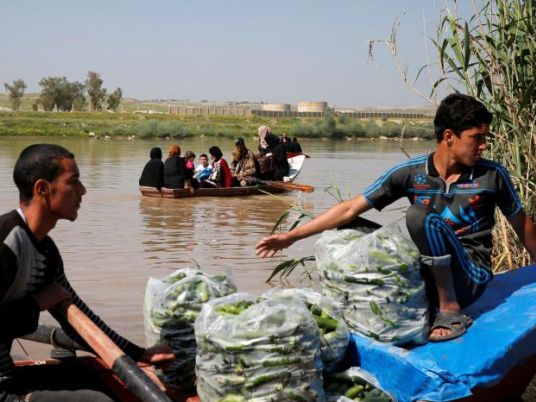
Flooding has made all bridges across the Tigris in and out of western Mosul impassable, cutting off aid supplies and escape routes for people fleeing the Islamic State-held part of the Iraqi city.
With the bridges down, hundreds of civilians crossed the surging river on small wooden boats on Sunday, some carrying babies and all carting suitcases or bags full of clothes.
They were some of the around 400,000 people still in western Mosul where Iraqi military forces are trying to dislodge IS from the Old City.
Mosul's permanent bridges over the Tigris river have been destroyed during the fighting, but the army had built two pontoon bridges which had allowed people to flee to safety in the east, and aid to get through to a camp for the displaced on the western side of the river.
But since the bridges were closed on Friday, no aid convoy has reached the Hammam al-Alil camp, southwest of Mosul, the main arrival point for displaced fleeing the fighting, a camp and a UN official said.
It was unlcear whether the bridges had become submerged or damaged by the floods, but soldiers blocking the approach roads said they were unusable.
"The flooding has had a big impact. All road traffic has stopped," said an official at Hammam al-Alil, home to some 30,000 displaced people.
"We have limited supplies left."
The camp, like other facilities in western Mosul, is supplied by road from Erbil, some 80 km (50 miles) to the east, in the autonomous Iraqi Kurdistan region where aid agencies are based.
Issam al-Jibouri, a displaced resident who went by boat to western Mosul to take supplies to needy relatives, said: "We urge more efforts to reconstruct the bridges or bring larger boats."
Like others, he had to pay 1,000 Iraqi dinars ($1) for the brief trip.
"People are suffering," said Mohammed Ahmed, a villager.




